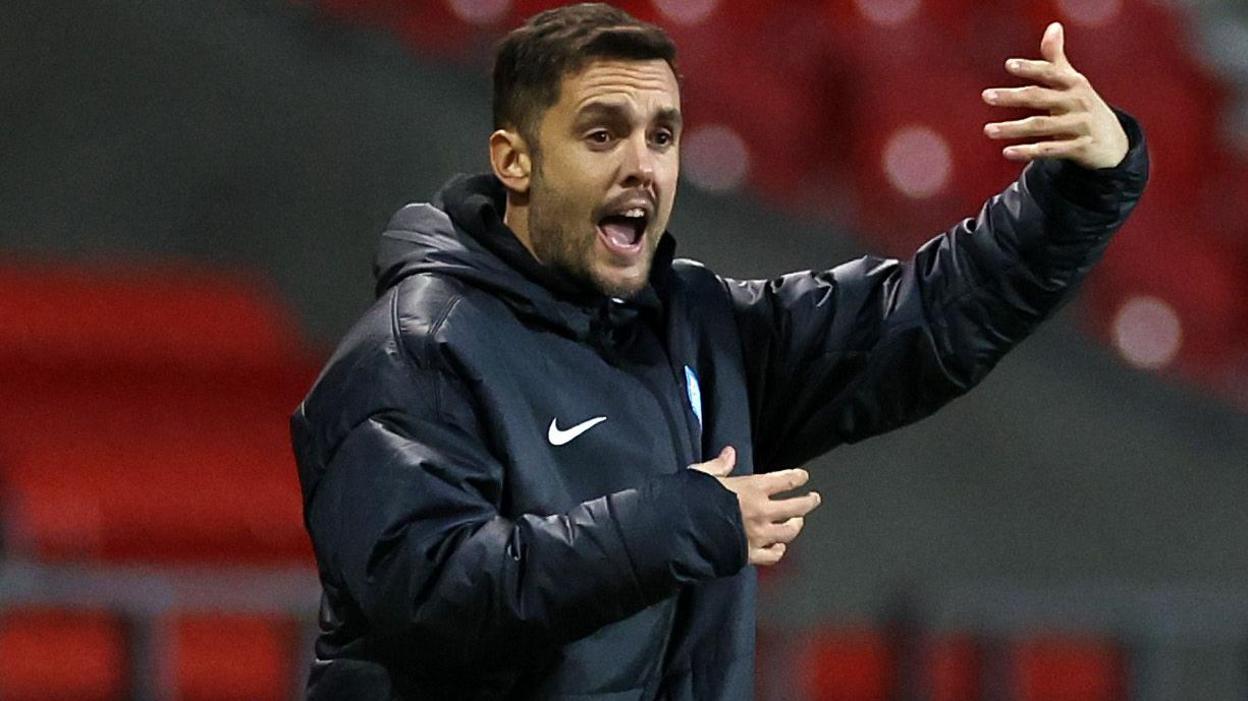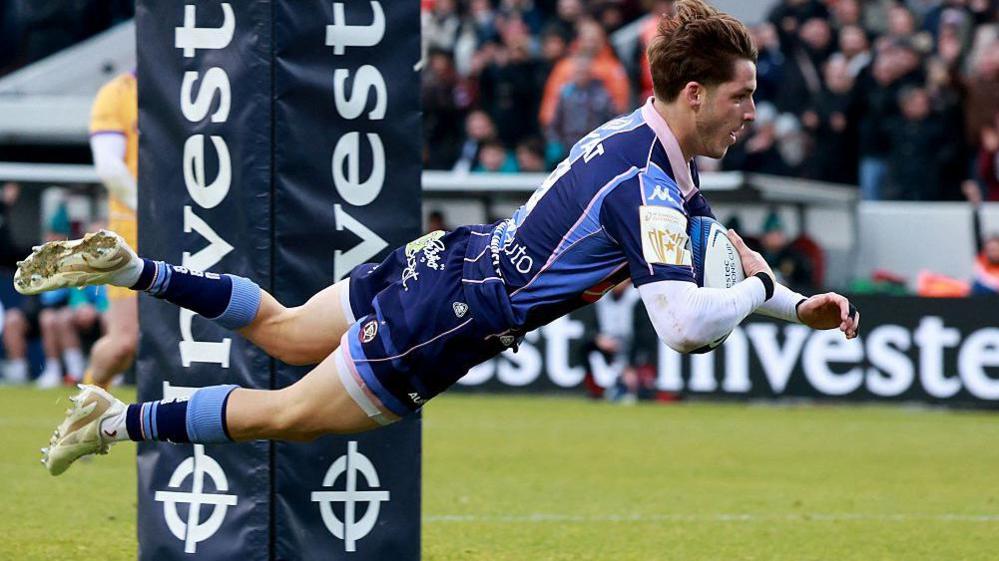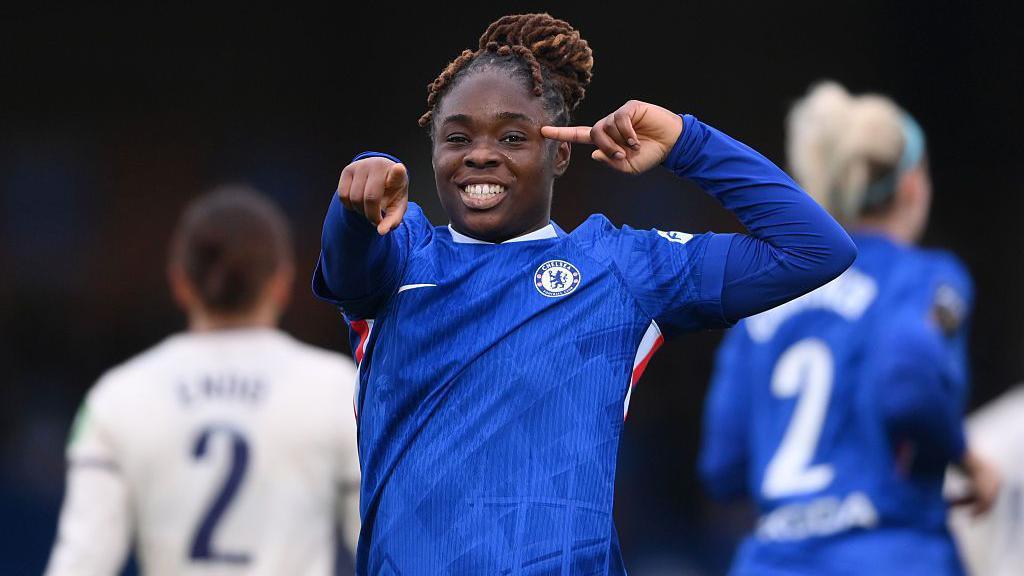To play this video you need to enable JavaScript in your browser.
Eder Maestre has challenged London City Lionesses players to match his ambition after his managerial tenure with the Women’s Super League club began with a drab goalless draw against Liverpool.
The 39-year-old Spaniard was appointed on 2 January following the sacking of Jocelyn Precheur last month.
Precheur was dismissed on 21 December with London City sitting in sixth place with five wins from their first 11 matches in their debut WSL campaign, but results were not the major factor behind his departure.
Owner Michele Kang wanted a coach capable of implementing a unique style of football – one that aligns with the club’s vision of playing in European competition by 2027.
But Maestre’s first game in charge ended in a dull stalemate with neither London City nor opponents Liverpool managing a shot on target.
Maestre said he “cannot recognise” the “team I want to see every week” during the game as he urged his side to get on board with his vision.
“I have very ambitious ideas in my brain so I hope I can bring this energy to create a new mindset, a new way to understand football – energy, attacking, pressing second balls,” Maestre said.
- 1 day ago
London City attempted two shots in the game at the St Helens Stadium – their lowest total in a single match in the WSL this season.
They have now failed to score in their last three WSL games, a run of 350 minutes without a goal.
“The feeling is not good, obviously. Of course we want to win, we came here to win,” Maestre added.
“The first thing we need to build is the mentality of winning every day. This is a little disappointing to not get the result that we wanted.

Related topics
- Football
- Women’s Super League
- Women’s Football









